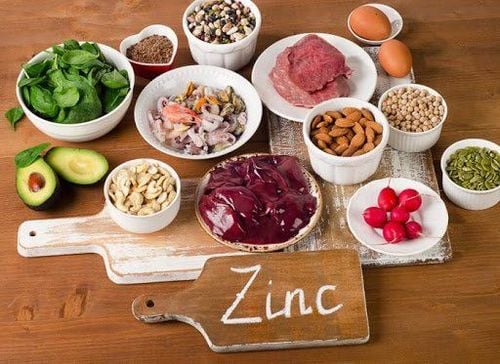It is natural for parents to worry when their child appears significantly shorter than other children of the same age. In some cases, Some parents choose height-increasing treatments like growth hormone therapy, while others wonder if supplements are a good idea for their children.
1. Types of growth hormones affecting children's height
This is considered a long-term treatment method that stimulates growth in children with specific hormone deficiencies or health conditions preventing normal development.
Hormones are chemicals produced by certain organs of the body, mainly endocrine glands and the pituitary gland. The pituitary gland produces hormones that promote the growth of body tissues. Growth hormone (GH) is one of the critical hormones responsible for such functions.
Growth hormone helps children grow by raising glucose levels, free fatty acids, and IGF-1, a key protein for development. These substances encourage cells to grow, divide, and repair tissues, which builds muscles and bones. Other hormones produced by the pituitary gland contributing to normal growth and development include thyroid-stimulating hormone, adrenal cortex hormone, and follicle-stimulating hormone.
Accordingly, the official indications for using growth hormone GH include treating children with a height stature below their age due to chronic kidney disease or chromosomal abnormalities such as Prader-Willi syndrome, Turner syndrome, or Noonan syndrome. However, the use of these drugs must always be approved, monitored, and adjusted appropriately by pediatric endocrinology specialists.
Nevertheless, growth hormones affecting children's height are sometimes available on the market as over-the-counter height-increasing medications. While these drugs may seem like an option when parents see their child lagging behind peers in development, they often question whether these supplements should be administered.
2. Considerations when deciding whether to give children height-increasing supplements
When considering growth hormone GH therapy for your child, it is essential to understand the benefits and limitations of this treatment.
Hormone therapy requires long-term adherence:
Growth hormone is administered daily through injections, although for some conditions, at least three injections per week may be required. Most of the time, treatment is prescribed for several years and can continue as long as the child can still grow.
In addition to growth hormones, children may need other hormones to keep overall hormone levels balanced.

High costs:
The cost of growth hormone therapy is usually very expensive. In the United States, this cost can range from $10,000 to $40,000 per year and is rarely covered by health insurance unless it is necessary as part of treatment for a severe medical condition. Even then, it may require persistence to get the child’s insurance company to approve long-term GH therapy.
Physical changes may not be dramatic:
If parents are considering growth hormones for their child, it is essential to discuss their expectations with a doctor, including the potential height the child may achieve. On average, growth hormone therapy can increase height by 2 to 8 cm when the child approaches adulthood.
Growth hormone therapy will help children be taller than they would naturally, but they may still be shorter than average. Parents should talk openly about any worries or feelings about their child’s height, as growth hormone can’t change how we see height.
3. Factors that can influence a child’s height:
When considering whether to give children height-increasing supplements, parents should recognize that growth hormones have potential risks. These include muscle pain, increased insulin resistance, progression to diabetes, and a long-term risk of malignant diseases. Instead of solely relying on height-increasing medications, parents need to understand that a child’s height is fundamentally determined by genetics, and every child grows at a different pace. Some children begin their growth phase earlier, while others start later.
Although a child's growth is progressing as expected, parents might still wonder how to enhance their child's height, especially if the child appears to be lagging in development or is shorter than peers. When consulting a pediatrician, it’s important to recognize that various factors influence a child’s height.
Sleep
In the short term, a lack of sleep may not immediately affect a child’s growth. However, since human growth hormone is released during sleep, prolonged sleep deprivation can impact a child’s development. Ensuring that children get enough sleep can support their growth and help them become taller faster.

Exercise
It is widely agreed that the human skeleton adapts to stress or load by becoming stronger and more resilient. Exercise is one of the most effective ways to stimulate human growth hormone. Therefore, exercise is crucial for helping children grow taller.
Nutrition
Improving a child's diet is undeniably one of the best ways for parents to support their growth.
According to nutrition experts, foods rich in protein, calcium, iron, and vitamins are essential for a child's development. These nutrients are abundant in primary food groups such as meat, fish, eggs, milk, grains, green vegetables, and fruits.
4. Ways to Help Children Grow Taller
If parents are genuinely concerned about whether their children should take height growth supplements, they should focus on other factors affecting height and explore safe ways to promote growth.
Establish a Quality Sleep Routine
When kids go to bed at the same time every night, their body clock helps them fall asleep easier.
This consistency ensures they get enough sleep and benefit from the human growth hormone released during sleep.
Include More Eggs in Their Diet
Protein is vital for children’s growth, and studies show that eggs are a great source of protein to help kids grow taller.
Fortunately, many children enjoy eating eggs. Eggs can be prepared in various ways—steamed, scrambled, fried, or added to soups—making them both delicious and versatile.
Provide Nutrient-Rich Meals Regularly
If children tend to crave snacks, parents can focus less on the quantity of food at each meal and more on the frequency and quality of meals. This approach can help children achieve better nutrition and growth.
Encourage Exercise
Research shows that exercise significantly impacts a child's potential height growth.
Exercises that help children grow taller are defined as activities where both legs move off the ground simultaneously. Some examples include jumping, leapfrogging, running, skipping rope, and swimming, which children can also enjoy with their friends.
In Conclusion, While parents are often concerned about their child’s height for various reasons, it’s essential to allow their growth and development to follow a natural process. Instead of worrying about whether to give children height growth supplements, focus on their happiness and health for long-term benefits.
To maximize growth during the "golden stage," parents can supplement their child’s diet with products containing lysine, trace minerals, and essential vitamins such as zinc, chromium, selenium, and B-group vitamins. These nutrients help meet the body’s needs, support digestion, enhance nutrient absorption, improve appetite, and contribute to comprehensive development.
To arrange an appointment, please call HOTLINE or make your reservation directly HERE. You may also download the MyVinmec app to schedule appointments faster and manage your reservations more conveniently.
To arrange an appointment, please call HOTLINE or make your reservation directly HERE. You may also download the MyVinmec app to schedule appointments faster and manage your reservations more conveniently.








